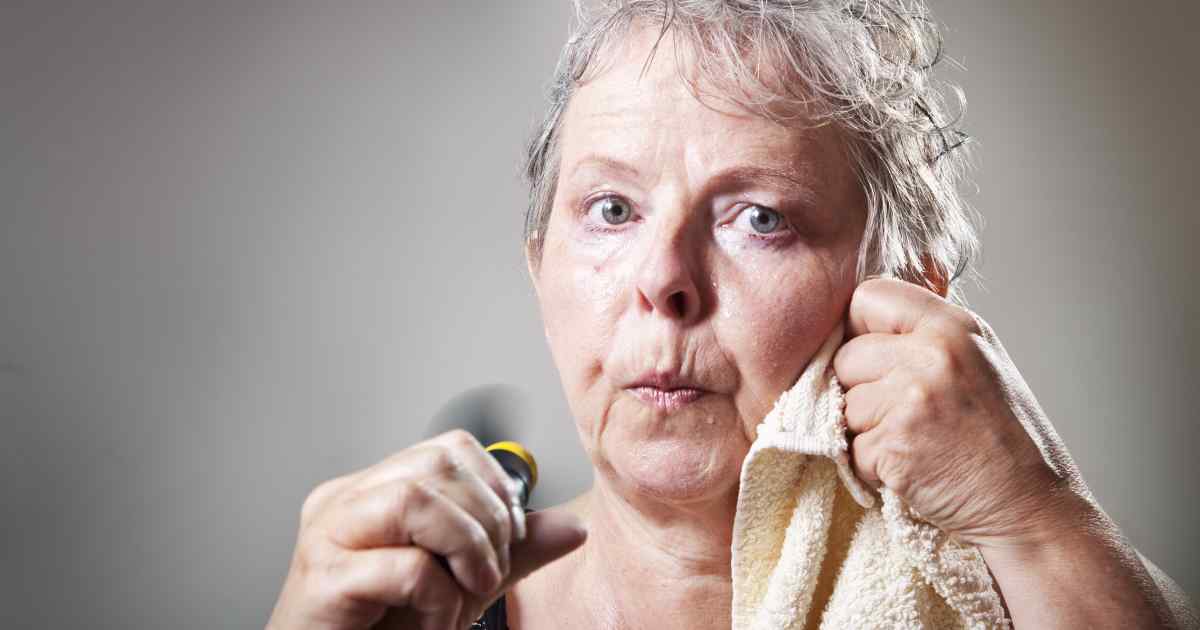As menopause begins, your hormone levels naturally decrease, leaving you with huge changes in your mood, your body, and your energy levels. Start a search to learn more about these changes that women in their 40s and 50s experience.
Menopause is a natural part of the aging process – but just because it’s perfectly normal doesn’t mean you have to suffer while it happens. Here’s what you need to know about treating the signs and symptoms of menopause.
Early Signs of Menopause
Menopause happens at different ages, which can make it a bit difficult to figure out if you’re undergoing menopause or if you’re experiencing changes for other reasons. Fortunately, the signs and symptoms of menopause are pretty consistent and different compared to symptoms for other health concerns.
If you’re wondering how you can spot the signs of menopause, be on the lookout for the following early symptoms and changes.
Irregular Periods: Irregular periods are often the very first sign that menopause has begun. Your periods will no longer arrive on time, and they can become shorter, longer, heavier, lighter, more or less frequent, or disappear altogether.
Hot Flashes: Hot flashes are a very common sign of menopause, and they can appear when your estrogen levels start to change. When a hot flash happens, you’ll suddenly feel heat in the upper half of your body. Your face can get flushed, your skin may get blotchy and red, and you may experience discomfort for anywhere from a few seconds to 10 minutes.
Night Sweats: Night sweats are essentially hot flashes that occur while you’re sleeping. At night, you may experience periods of intense heat followed by shivering or dramatic changes in body temperature. You may find that you need a cooler sleeping environment at night to get comfortable.
Depression and Anxiety: As your hormones fluctuate, you may start to feel out of control – and with that feeling, you can become irritable, anxious, tired, and sad. Depression and anxiety can come in waves while you’re going through menopause, or they can stick around daily. You may experience chemical imbalances and need counseling, therapy, or medication to combat these symptoms.
Vaginal Dryness: Another symptom of your changing hormones during menopause is vaginal dryness, which happens as your ovaries stop producing hormones. You may need lubricants, moisturizers, or other products to maintain moisture and elasticity as menopause begins and progresses.
Trouble Sleeping: While difficulty sleeping may not immediately be a problem you associate with menopause, it can be one of the early signs of your changing body. Waking up in the middle of the night or struggling to fall asleep are both symptoms of menopause, and it can be accompanied by other symptoms like night sweats.
Although these symptoms are varied and challenging to live with while you’re experiencing menopause, there are ways you can treat them. And treating your symptoms can help make menopause a less difficult change to undergo.
The Best Treatment Option: Hormone Replacement Therapy
Popular and effective, one of the very best ways to treat the symptoms caused by menopause is hormone replacement therapy. Hormone therapy can tackle the symptoms by targeting the root of all menopause symptoms: your loss of estrogen.
Hormone replacement therapy, which is also called hormone therapy, is a prescription medication that’s taken via pill or applied topically. These medications replace some of the hormones your body is no longer making, giving you an influx of artificial estrogen and progesterone to soothe the symptoms that are disrupting your daily life.
And hormone replacement therapy is effective. It can reduce hot flashes, help you sleep better at night, and even aid with mood changes or swings. When prescribed, hormone replacement therapy is usually given in low doses for short periods of time, helping to make menopause an easier process while you adjust to your new normal. With so many different hormone replacement therapy options and brands, you can easily talk with your doctor about which option will work best for your symptoms.
Other Treatments That Work
Hormone replacement therapy, while a fantastic option for treating menopause symptoms, isn’t the only way you can soothe the symptoms you’re experiencing. There are other options that can treat targeted symptoms, offer a holistic or alternative treatment, or help you feel better overall as you undergo this huge change.
Here are a few other treatments beyond hormone replacement therapy that are great for menopause symptoms.
Vaginal Estrogen: If vaginal dryness is one of your most frustrating symptoms, you can replace the estrogen your body has lost with creams, tablets, or rings that deliver this hormone right where it’s needed. Vaginal estrogen can alleviate dryness, sexual discomfort, and urinary issues.
Antidepressants: If you’re feeling depressed or anxious, you may need a low-dose antidepressant to help you with any mood disorders or chemical imbalances. Antidepressants can be helpful for managing hot flashes and that feeling of losing control you may experience.
Gabapentin: Gabapentin is a medication that’s prescribed to treat seizures, but it can actually work wonders for hot flashes that happen during menopause. This medication is a great alternative to estrogen therapy, and it can help with day and night hot flashes.
Plant Estrogens: Taking plant estrogens, or estrogens that occur naturally in foods, can be an alternative or supplement treatment option for menopause. It’s an additional way to get more estrogen without hormone therapy.
No matter what your menopause symptoms are, the key is being informed. If you’re able to recognize menopause early on when it begins, you can begin taking steps to get any treatment you need for your symptoms.
